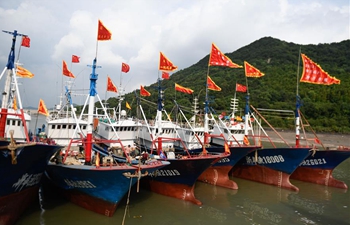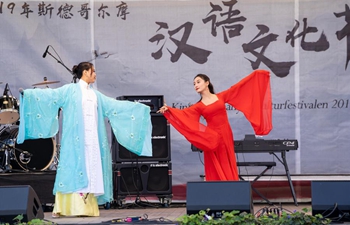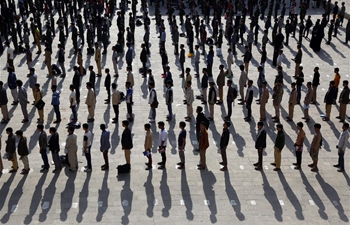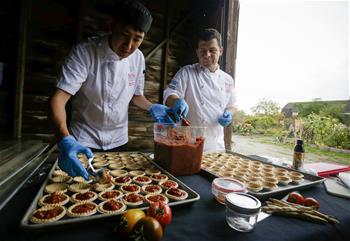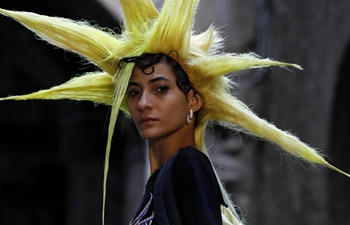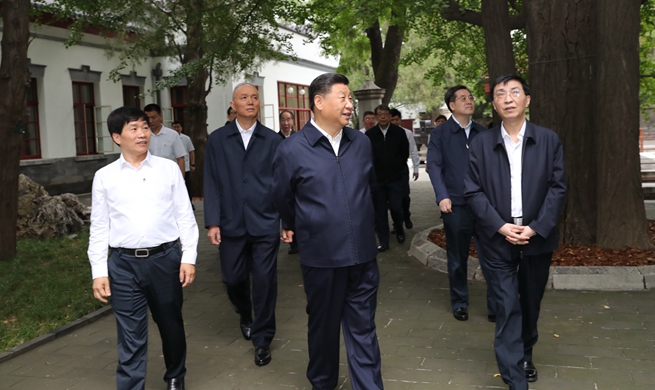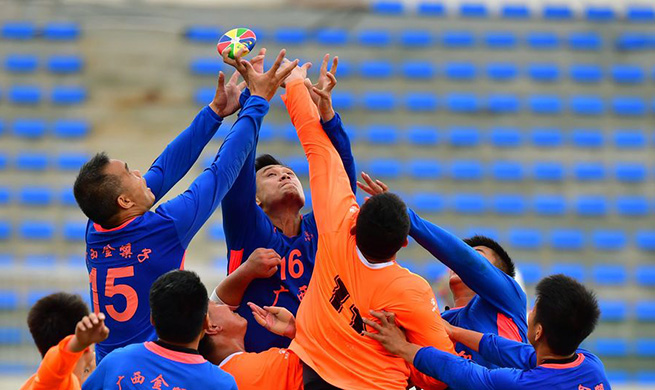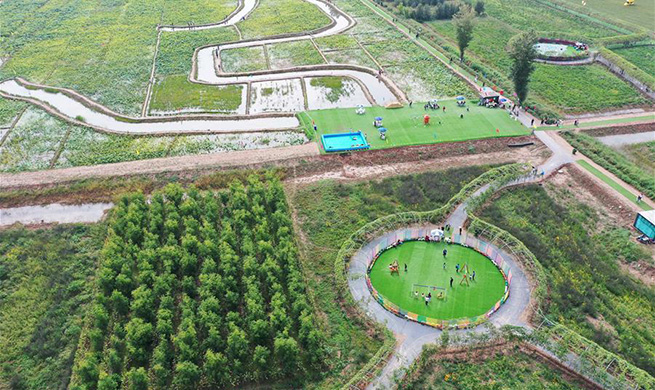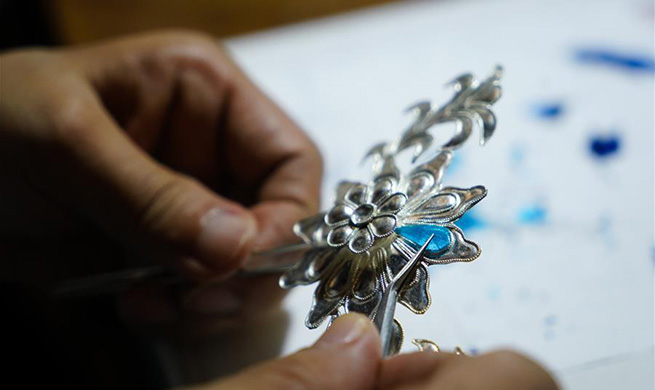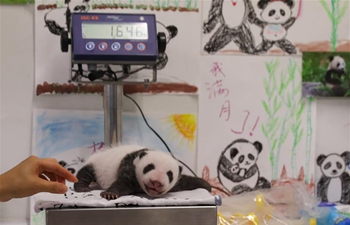KAMPALA, Sept. 15 (Xinhua) -- Across African continent, China-backed companies, industrial parks and infrastructural projects are helping Africa on growth quality, efficiency and industrial upgrading.
In and out of the Ugandan capital Kampala, there are a lot of buildings painted with advertisements of Goodwill -- a Chinese ceramics tile company that relocated from China to Africa in an internationalization move.
Goodwill opened shop in Uganda in 2017 after it had established factories in Tanzania and Ghana in 2015 and in 2010 in Nigeria.
With the factories in East and West Africa, Goodwill hopes to revolutionize the ceramic tile making industry in Africa, according to Jiang Ke, deputy managing director of Goodwill Uganda.
"In African market, we have four factories producing about 25-30 percent of the whole continental production capacity, which means we are the biggest ceramic tile factory in Africa," Jiang told Xinhua in a recent interview.
Most of the ceramic tiles in Africa are imported from Europe and Asia, although there are a few factories in Egypt and South Africa.
By setting up in Africa, Goodwill is targeting to explore the growing market and also save African countries from spending their foreign exchange, said Jiang, adding that Goodwill is also bringing many local jobs and government tax revenue.
He said in China, Goodwill now do not have a factory apart from their headquarters and a procurement center.
For many Chinese firms that are seeking overseas expansion, Africa is one of the desired destinations due to the increased cooperation between the continent and China.
Over the last four years, China has announced over 120 billion U.S. dollars to boost is cooperation with Africa through the Forum on China-Africa Cooperation (FOCAC). The first announcement of 60 billion dollars was in 2015 during the FOCAC summit in Johannesburg, South Africa. The second batch was annouced last year in September during the Beijing summit on the FOCAC.
This cooperation has paved way for massive construction of transport and energy infrastructure projects across the continent. In Uganda, China financed the already commissioned 183 Megawatt Isimba Hydro Power Plant. The Asian country is also financing the construction of the 600 Megawatt Karuma Hydro Power Plant. This is in addition to other projects like financing road construction and expansion of the country's Entebbe International Airport.
All these efforts, according to the Ugandan government, are unlocking the country's economic potential.
Jiang said these enabling factors and also a good business environment provided by the Ugandan government, helped Goodwill to quicken its decision to invest in Uganda.
Goodwill set up its 35 million-dollar factory at Liaoshen, a Chinese industrial park located in Nakaseke district about 70km north of the Kampala.
According to the company, it now commands a share of over 70 percent of Uganda's tile market. Most of the tiles were imported from China and India.
The factory produces about 28,000-34,000 square meters of tiles per day, some of which are exported to neighboring Lwanda, Kenya, and South Sudan, among others.
While commissioning the factory last year in September, Ugandan President Yoweri Museveni said the factory would save the country 35 million dollars per year through import substitution and also export tiles worth 15 million dollars.
Jiang said the factory employs about 800 local people.
He said that although the company faces some challenges like the high transportation costs, they are determined to stay in Africa.
He said in Uganda, only about 40-50 percent of what the factory produce is consumed.
Jiang said they are now looking at more investment opportunities like dealing in construction materials.




